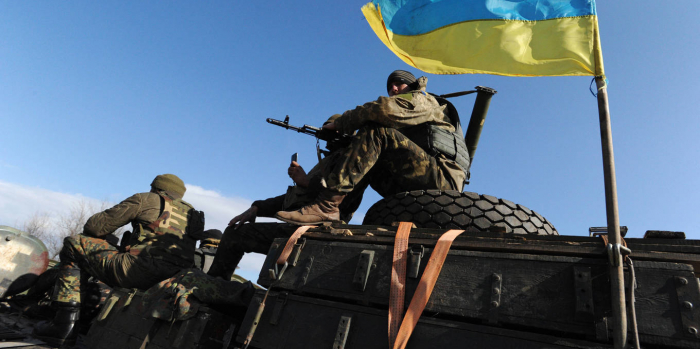Some doubt the wisdom of granting Ukraine NATO membership, warning that it will give the alliance nothing but headaches. In fact, Ukraine brings much to the table, from a battle-tested military to the ability to act as the model of a functioning democracy that post-war Russia will need.
This week, almost every Ukrainian will be looking longingly toward Lithuania’s capital, Vilnius. It is there, at the summit of NATO’s leaders, that our place in Europe and the West will begin to be decided.
Although virtually all Ukrainians dream of NATO membership, the brutal fighting in which we have been forced to engage since Russia invaded our country nearly 18 months ago has taught us hard lessons in realism. So, we are well aware that making our NATO dream a reality will be no easy feat. I am certainly aware: in 2008, I co-signed Ukraine’s application letter to NATO’s secretary-general. Yet Ukraine remained outside the alliance – with devastating consequences.
No one expects Ukraine to be offered NATO membership while war rages on our territory. This would, after all, compel the alliance, under Article 5 of its founding treaty, to intervene in the conflict. The idea of a full-scale war between NATO and Russia – a nuclear-armed country that has already demonstrated a criminal degree of recklessness – appeals to no one, Ukrainians included.
But the current war won’t last forever. The skill and bravery of our soldiers, together with the commitment of our allies and friends – not only NATO members, but also dozens of other countries, as far away as Japan – to supplying us with the tools we need to expel Russia from our territory will see to that. NATO membership for Ukraine, then, is about what is needed after the war ends. It is about restoring and maintaining peace in Europe, and thus fulfilling NATO’s most fundamental purpose.
Yet, within the alliance, there are doubts about the wisdom of making us members. Let me try to dispel some of them.
Some seem to worry that Ukraine will become a kind of free-rider, offering NATO nothing but headaches. But there can be no better evidence to the contrary than our effective resistance – and ultimate defeat – of Russia on the battlefield. In fact, our battle-tested, supremely confident military will be a major asset for transatlantic security for decades to come.
On the battlefields of Ukraine, a new type of warfare has been born, and it is Ukrainian troops – not those of Russia – who have devised new and often ingenious tactics. Whereas almost all NATO members have scant experience with large-scale warfare in the twenty-first century, Ukraine’s military – from newly enlisted soldiers to general staff – understands that technology and individual decision-making, down to the platoon level, will be the key to military success in the decades ahead. Ours is the new model army that Europeans will want to emulate in terms of training, tactics, and the responsibility given to every soldier.
The fact is that Ukraine’s military is the best fighting force, by far, that one will be able to find in Europe for the foreseeable future. And NATO can be certain that it will always be kept at peak readiness. We paid a heavy price for being unprepared for war in 2014, when Russia first invaded our territory and seized Crimea. That will not happen again. We will be an ally ready and able to defend every inch of NATO territory from the very first day that we join.
That solemn commitment to defend our allies is one that I am certain Ukraine will uphold. NATO members should recall that, when the war began, we were “alone” in the same way that Winston Churchill saw the United Kingdom as alone in the spring of 1940. But we did not hesitate to stand and fight. Our unity, tenacity, and steadfastness in those dark hours, days, and weeks should command the respect of all NATO members. Ours is a nation that will fight for liberty no matter the odds.
As to the nuclear threat, it is precisely Ukraine’s status as a non-NATO member that has enabled the Kremlin’s nuclear saber-rattling. No nuclear threats had been heard in Europe for decades before Russia’s full-scale invasion of Ukraine in 2022. But, because Ukraine is not a NATO member, Russia’s leadership has repeatedly threatened to deploy tactical nuclear weapons during the current conflict.
There is yet another reason why Ukraine will be an asset to NATO: when the war is over, Russia will still be next door. I possess no crystal ball; I cannot begin to guess who will govern Russia at that point. But I know that ordinary Russians – having endured decades of despotism and having now lost 100,000 or more of their sons in a failed war of aggression – will be looking for an example of the society they wish for themselves.
A thriving Ukrainian democracy, fully integrated into NATO and the European Union, can and must be that shining example. We have paid too high a price to settle for anything less.
Yuliya Tymoshenko is a former prime minister of Ukraine.
More about:
















































